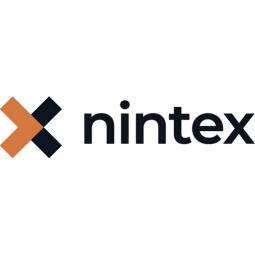Download PDF
Jacksonville Jaguars Enhance CRM with eSignature for Efficient Season Ticket Renewals
Applicable Industries
- Electronics
- Paper & Pulp
Applicable Functions
- Sales & Marketing
Use Cases
- Supply Chain Visibility
- Time Sensitive Networking
Services
- System Integration
The Challenge
The Jacksonville Jaguars, a professional football franchise, faced a challenge in their season ticket renewal process. Each year, the sales team sent out season ticket agreements to previous holders, which took a week or more to return signed. This delay hindered the team's ability to quickly engage with prospective season ticket holders. The Jaguars sought a solution to expedite this process, allowing them to gain immediate knowledge of fans who chose not to renew. The solution needed to provide on-demand sending capabilities based on customer information in their CRM system. The team began seeking an electronic signature solution that could improve internal efficiencies by enabling quicker executions of season ticket agreements through a paperless process. The solution had to integrate seamlessly with their existing Microsoft Dynamics CRM and allow bulk sending and document management for thousands of agreements at a time.
About The Customer
The Jacksonville Jaguars are a Florida-based professional football franchise and members of the American Football Conference (AFC) of the National Football League (NFL). The team emerged out of league expansion in 1995 and has since won two division championships. The Jaguars represent Jacksonville, Florida, America’s 11th largest city, and have a supportive fan base with home game attendance totaling 1,066,627 fans. Each year, the Jaguars sales team sends out season ticket agreements to previous season ticket holders to solidify new agreements for the upcoming season.
The Solution
After evaluating multiple vendors and solutions, the Jaguars adopted Nintex AssureSign in June 2014. This solution met all the sales team's unique criteria and was simple to implement and use. Nintex AssureSign's sophisticated APIs empowered the Jaguars sales team to reach fans by the thousands, including those who may not have been previous season ticket holders. The transition from paper to eSign season ticket agreements allowed the sales team to manage completed ticket waivers within 15-20 minute windows. They also gained greater visibility into the massive number of agreements dispersed, enabling them to easily track and monitor unsigned agreements. The Jaguars also plan to expand eSign efficiencies into the game day fan experience, replacing paper waivers with eSigned waivers for interactive activities before and during games.
Operational Impact
Quantitative Benefit
Related Case Studies.

Case Study
Remote Temperature Monitoring of Perishable Goods Saves Money
RMONI was facing temperature monitoring challenges in a cold chain business. A cold chain must be established and maintained to ensure goods have been properly refrigerated during every step of the process, making temperature monitoring a critical business function. Manual registration practice can be very costly, labor intensive and prone to mistakes.

Case Study
Wireless Improves Efficiency in Compressed Air Systems
Hollingsworth and Vose wanted to improve the efficiency of their compressed air system, lower the electricity expense component of manufacturing cost in their commodity industry, and conserve energy leading to lowered greenhouse gas emissions. Compressed air systems degrade over time and become leaky and inefficient. Hollingsworth and Vose wanted to increase the frequency of system inspections without paying the high cost of manual labor.

Case Study
Cloud Solution for Energy Management Platform-Schneider Electric
Schneider Electric required a cloud solution for its energy management platform to manage high computational operations, which were essential for catering to client requirements. As the business involves storage and analysis of huge amounts of data, the company also needed a convenient and scalable storage solution to facilitate operations efficiently.

Case Study
Leveraging the IoT to Gain a Competitive Edge in International Competition
Many large manufacturers in and outside Japan are competing for larger market share in the same space, expecting a growing demand for projectors in the areas of entertainment, which requires glamor and strong visual performance as well as digital signage that can attract people’s attention. “It is becoming more and more difficult to differentiate ourselves with stand-alone hardware products,” says Kazuyuki Kitagawa, Director of Service & Support at Panasonic AVC Networks. “In order for Panasonic to grow market share and overall business, it is essential for us to develop solutions that deliver significant added value.” Panasonic believes projection failure and quality deterioration should never happen. This is what and has driven them to make their projectors IoT-enabled. More specifically, Panasonic has developed a system that collects data from projectors, visualizes detailed operational statuses, and predicts issues and address them before failure occurs. Their projectors are embedded with a variety of sensors that measure power supply, voltage, video input/ output signals, intake/exhaust air temperatures, cooling fan operations, and light bulb operating time. These sensors have been used to make the projector more intelligent, automatically suspending operation when the temperature rises excessively, and automatically switching light bulbs. Although this was a great first step, Panasonic projectors were still not equipped with any capability to send the data over a network.







